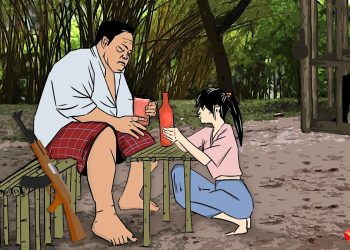Myanmar’s regime is probably planning to hold a general election in 2025 as junta-appointed immigration minister Myint Kyaing on Sunday announced a census will be conducted from October 1-15, 2024.
Observers say any election proposed by the junta is expected to take place in 2025 at the earliest as it will take a few months to collate the data and publish a report. The regime is likely to extend military rule until then, observers say.
At a junta cabinet meeting on February 23, junta boss Min Aung Hlaing said a census would ensure the accuracy of voter lists. He repeatedly calls for accurate voter lists and it is seen as unlikely he will call an election until a census is completed.
Voters need time to observe political parties and their leaders, Min Aung Hlaing told his cabinet. Myanmar is unstable and several conditions need to be met before a free and fair election can be held, he added.
Initially, the regime planned a general election later this year but it instead extended military rule for another six months, citing the “extraordinary situation” of nationwide conflict.
The regime last month enacted its Political Parties Registration Law, which requires parties to reregister with the junta-appointed Union Election Commission. Fourteen parties have reregistered so far.
The regime has invited tenders to supply polling station materials and is also planning to introduce electronic voting.
The US-sanctioned immigration minister Myint Kyaing said his ministry was preparing questionaries for the census. He also chairs the junta’s central census commission.
A majority of the population does not believe the election will be either free or fair. The US, EU and Malaysia have called the election a sham.
Thirteen election offices were destroyed in resistance attacks from December 2021 to this January, according to junta-controlled newspapers. Four people, including two policemen, were killed while they were updating voter lists in January, according to the regime.
The last census was undertaken in 2014, the first in 30 years, under ex-general Thein Sein’s quasi-civilian government. The process was led by then immigration minister Khin Yi, who is the current chairman of the military’s proxy Union Solidarity and Development Party.

















